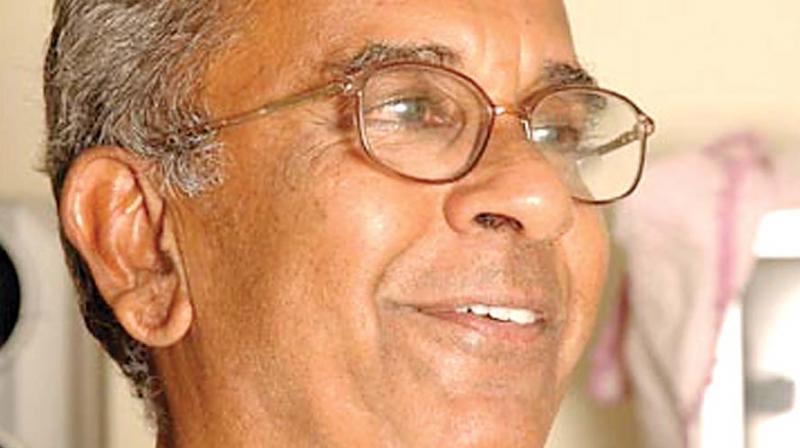Chennai’s water scarcity is man-made: Expert
This is the fifth lowest quantity of water recorded in the last 74 years, making it one of the worst droughts the city has witnessed.

Chennai: Braving the scorching sun, Bharathi stands with three pots in one hand and her sleeping child in another awaiting her turn to fill her vessels. Ahead of her is a long line of people, quibbling impatiently. The water tanker horns its way through the irate crowd and the line collapses. There is brief chaos as the women frantically rush forward to get their empty vessels filled. With water becoming nothing short of luxury this summer, these sights have only become more than common in the last two months. And just two years after TN was declared to be a drought-hit state, it is parched once again.
As the temperatures soar and the people of Chennai look up to the sky in vain, the situation only seems to have worsened with the groundwater table and reservoirs going parched. A recent study has revealed that the city's water table has gone down by an average of 8 metres. The water levels in Chennai's four main reservoirs have been at their lowest in seven decades, with the current quantities cumulatively adding only up to 1.3% of the total capacity. This is the fifth lowest quantity of water recorded in the last 74 years, making it one of the worst droughts the city has witnessed.
However, Chennai's drought is totally man-made according to some experts. While the state is trying to grapple with the water crisis, many water experts believe Chennai's drought is 'man-made' and say it could have been prevented with proper rainwater harvesting.
Speaking to Deccan Chronicle, Sekhar Raghavan, director, Rain Centre, Chennai, says,” Between 2009 and 2019, the water resources of 23 districts in the state have been depleted to alarming levels. All this could have been prevented if people practised rainwater harvesting.”
“The concept of rainwater harvesting existed in India throughout history. An archaeological excavation in Gujarat revealed that rainwater harvesting was done in the country even 5000 years back. Rainwater harvesting was mandated in 2001 by the then chief minister late Ms.Jayalalitha. Sec 215 (a) of Tamil Nadu District Municipalities Act, 1920 and Building Rules 1973, makes it mandatory to provide rainwater harvesting systems in all newly constructed buildings. Despite being the first state in the nation to bring about such a law, Tamil Nadu is facing an acute water crisis because of the callous attitude of the people. Chennai's water scarcity is entirely 'man-made' “, he says.
Emphasizing that rainwater harvesting is the need of the hour, he notes, “Though rainwater harvesting was made compulsory, it was adopted by only 50 per cent of the people. A survey conducted in January 2006 found that the groundwater table had increased by 20 feet (6 metres). This is the impact brought about by just half the population. Harvesting should become a community effort. “
In 2016, TN faced one of the worst water crisis the state had ever seen. The failure of northeast monsoons( winter rains) resulted in the worst rainfall the state had seen in 140 years. Soon TN was declared `to be a drought-hit state and 144 farmers died in the protests that ensued. The current scenario has left many fearing that the government is staring down at a similar crisis in 2019 and this is yet another clarion call for us to act immediately.
Depleted water table, parched reservoirs, uncertain rains on one hand and thousands of thirsty mouths to quench on the other- the real question now is will thirst become unquenchable?

